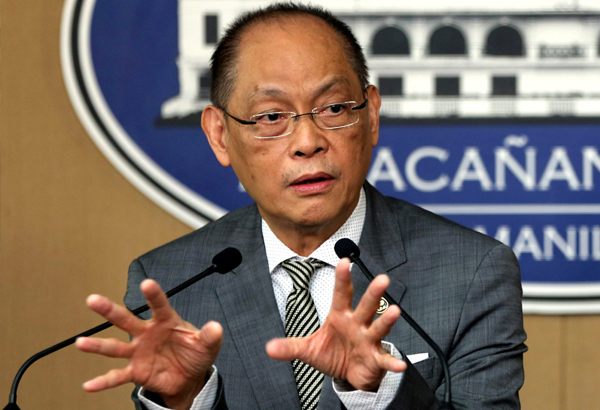
TAGAYTAY CITY – The Department of Budget and Management (DBM) is adopting more budgetary and fiscal reforms for an innovative, effective, and responsive government in the long term, Budget secretary Benjamin Diokno said.
The reforms include the budget and treasury management system; modernized Philippine government procurement system; and Project DIME or the Digital Imaging for Monitoring and Evaluation, Diokno said during the opening ceremony of the “International Conference on Public Sector Productivity”, hosted by the Development Academy of the Philippines (DAP) and the Asian Productivity Organization (APO) at the DAP Conference Center here.
“This event is very timely given the reforms under the Duterte administration are internally implemented for more innovative, effective and responsive government in the long-term,” he said.
The budget chief told some 200 delegates composed of national and local executives, economic and industry experts and public sector analysts that innovation is important.
A public sector that will not adapt to changing circumstances will become too rigid, rendering it incapacitated in delivering public goods and services, resolving complex problems, and achieving national development goals, he said.
To change the way of doing things, Diokno said the DBM has introduced budgetary and fiscal reforms after assessing that the country’s public financial management (PFM) system is highly fragmented with thousands of spending units.
He said the Budget and Treasury Management System is aimed at eliminating multiple stand-alone systems that are used for different PFM activities, including accounting and fiscal reporting and provide real-time online monitoring on budget information.
It also aims to standardize and automate processes, formats, and reporting across the national government and consolidate government-wide reports for a systematic, real-time reporting of all revenues, expenditures and liabilities.
He said the budget and management department is undertaking to modernize the Philippine Government Electronic Procurement System (MPhilGEPS) in a bid to set in place a single, central electronic portal that will serve as the primary and definitive source of information for government procurement using cloud-based technology, a reliable system for various users.
The MPhilGEPS is the modernized upgraded system that aims to replace the old practice of posting of bids and awards, notices, and uploading of eligibility documents. It includes an e-bidding and e-reverse auction functionality to make procurement more transparent.
“To complement this, the new electronic procurement system would now be using a platform for online shopping for common-use supplies and equipment with an e-wallet and virtual store,” he explained.
The DBM secretary also introduced Project DIME, which will be adopted to monitor selected high-value government projects by comparing fund use vis-à-vis physical accomplishment to instill transparency and accountability, such the use of drones, LIDARs and satellites.
Project DIME was hatched to verify that the people’s money is well-spent in the provision of goods and services and that this will also assist the implementing agencies in the provision of their programs, activities and projects.
“We are making headway in training personnel in agencies about Project DIME in utilizing the technologies provided to us by the Department of Science and Technology (DOST), specifically on the use of various imaging technologies and geo-tagging applications,” Diokno said.
He said the DIME project technology is necessary, especially in overseeing projects in remote areas wherein in-person physical inspection would prove difficult.
Citizens in the vicinity are also engaged to ensure implementing agencies are accountable for their unfinished projects because they are encouraged to upload photographs of the projects with the date, time and even the GPS coordinates to the DIME portal.
He also assured to institutionalize two budgetary and fiscal reforms through legislative measures, such as the Budget Modernization Bill and the Government Rightsizing Bill that would be permanent before President Rodrigo Duterte’s term ends by 2022.
“The budget modernization bill is meant to strengthen the government’s accountability to the people for the use of public funds through greater transparency,” Diokno said.
He confirmed that the budget reforms thus far established would be irreversible; set more results-focused budgeting system; strengthen discipline in government to implement the annual budget as legislated; and increases the capacity of government to implement projects, activities and programs.
On the other hand, the government rightsizing bill enhances its institutional capacity and delivery of public services.
The bill includes the elimination of functions, programs and projects that are already redundant or no longer needed, as well as the abolition of agencies with overlapping or redundant operations and functions.
According to Diokno, both bills, which have already passed the third and final reading at the House of Representatives, are in the period of interpellation at the Senate. (PNA/PN)



